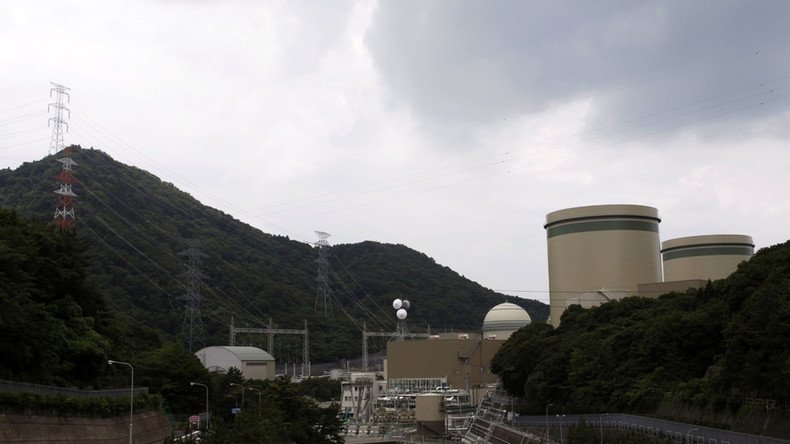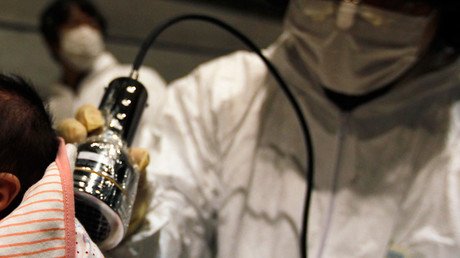Nuclear reactor in Japan leaking radioactive water amid nationwide restart

A nuclear power station in Japan is leaking, this time the Takahama plant, about 380km west of Tokyo. The radioactive water leak comes amid a nationwide push to restart reactors after the catastrophic meltdown at Fukushima five years ago.
The reactor would have been the fourth to come on after the shutdown. The push by the government and utility companies came amid protests across Japan against the continued reliance on nuclear energy, prompted by failures to get the Fukushima crisis under control.
Now Kansai Electric Power says about 34 liters of radioactive water have escaped the plant’s reactor No. 4. An investigation is underway.
"Resumption procedures related to the incident have been suspended as we are still investigating the cause," a Kansai spokesman said, according to AFP.
The official said the alarm went off as soon as water was injected into a pipe connecting to the reactor’s first cooling system at about 3:40pm local time on Saturday, the Japan Times reported. Two valves for a filter in the cooling room were found to be dripping radioactive water.
An eight-liter pool was discovered, but traces of the contaminated water across the floor indicate a total of 34 liters had managed to spill. This amounts to about 64,000 becquerels of radioactive waste.
The 30-year-old Reactor No. 4 has been idle since the 2011 shutdown, as part of post-Fukushima regulations that involved taking reactors offline for scheduled backups. Takahama Reactor No. 3 was activated earlier in January, while No’s 1 and 2 at the Kyushu Electric Power Co.’s Sendai plant were restarted last year.
In March 2011, following the devastating tsunami and earthquake that shut down Fukushima Daiichi, the government introduced strict new safety checks. But, apparently, not every reactor lucky enough to pass the new standards was returned to normal operation.
In fact, two of Takahama’s reactors (3 and the currently leaking 4) were both given a ‘no’ by a local judge, who firmly sided with the people last April.
“The new regulations are not reasonable, therefore there is no need to study whether the Takahama plant satisfies them,” said Judge Hideaki Higuchi in his ruling. “There is little rational basis for saying that an earthquake with a magnitude that exceeds the safety standard will not occur. It is an optimistic view.”
However, this temporary victory only slightly postponed the restart of No. 4 at Takahama to 2016. The residents had hoped the decision would reverberate throughout Japan. Activists had anticipated the regulations would mean lengthy legal procedures for any reactor wanting to restart.
Faced with energy prices that have risen 20 percent, loss-making energy companies that have to be subsidized from the state budget, and huge cleanup costs from Fukushima, Prime Minister Shinzo Abe’s government has pushed for nuclear energy to be re-introduced into the mix.














